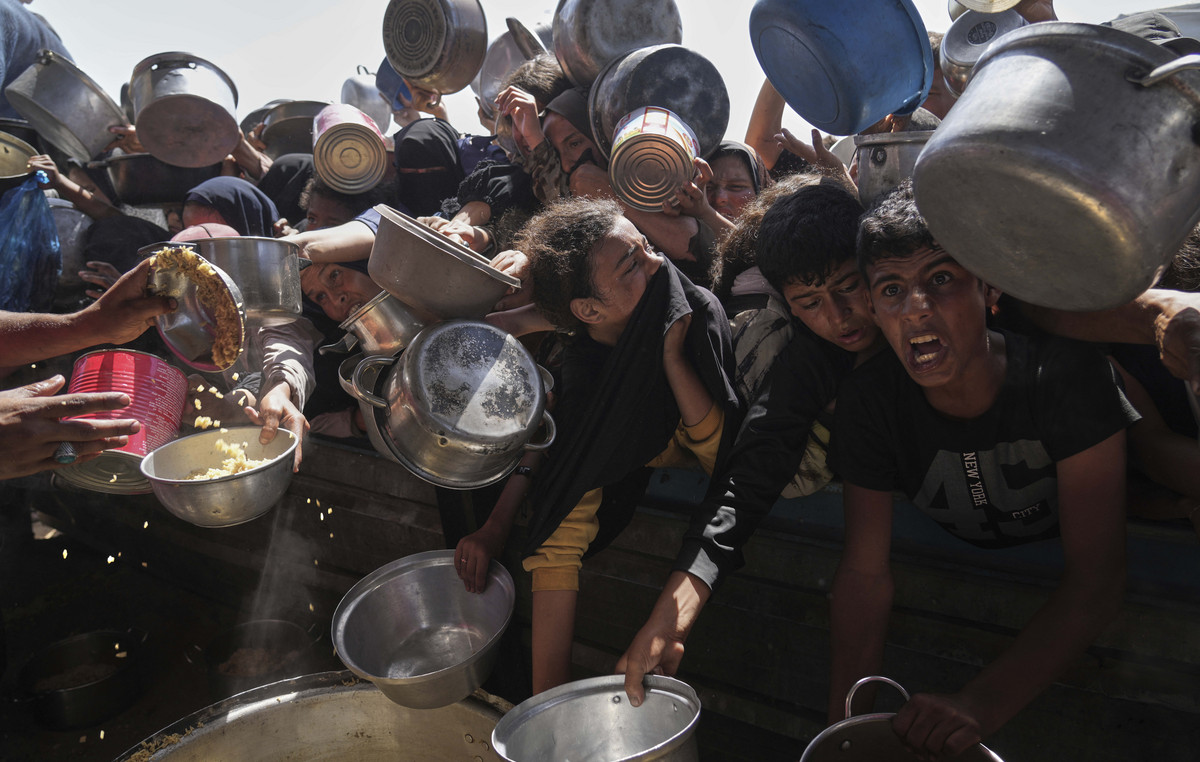The Oswaldo Cruz Foundation (Fiocruz) published this Tuesday (21) a study that reinforces the importance of vaccinating children aged 5 to 11 against Covid-19, as a strategy to expand vaccination coverage in the country. According to the survey, without including this age group in the campaign, it would only be possible to protect, at best, 85% of the Brazilian population.
For researcher Raphael Guimarães, a member of the Covid-19 Observatory and one of the authors of the study, with this index it would be practically impossible to reach the minimum percentage necessary for the safe relaxation of the measures to contain the pandemic, something in the range of 80%.
“If we look at Brazil as a whole, 15% of our population is made up of people from zero to 11 years old. So, even if you manage to vaccinate all people aged 12 and over, it would only be possible to reach 85% of the total population immunized. It’s a bad level if you think that it’s at least acceptable to make any form of flexibilization more forceful”, says the researcher.
Fiocruz also highlighted that it has observed, since September, a trend of stagnation in immunization in the country, which points to a need to expand the age range for vaccination. According to the foundation, it is necessary to strengthen immunization in regions with low adherence.
In the North, the numbers are well below those presented in the South and Southeast. Amapá, with 36.7% of the population with two doses, has the lowest coverage. The index represents less than half of the São Paulo indicator (74.8%), where the largest proportion of the vaccinated population is located.
For Fiocruz, a more active intervention by the states and mainly the municipalities is needed, as explained by Raphael Guimarães.
“It is necessary to guarantee the creation of mobile stations so that it is possible to access places where the population cannot go. But when creating this strategy, it is necessary to ensure that it is repeated for the application of the second dose as well”, says the researcher. “SUS has experience with this, as we have been doing this since the publication of the national policy on primary care, in 2011, in relation to river teams, especially in the North, where we use boats to access riverside populations from more remote places in the country”, complete.
Also according to the study, the risk for places where there is low vaccination coverage, if there is no advance in immunization, is not restricted to a faster spread of Ômicron, but can cause the emergence of new variants and, eventually, some of them may present vaccine escape.
“Every time the virus manages to adapt well to the environment and create some form of mutation, which gives rise to these new variants, we are at risk of finding a variant that has greater resistance to the vaccine and is more aggressive to the human body”, evaluates.
The study, however, emphasizes that this slowdown in vaccination is precisely driven by the difficulty of access by part of the population, and not, necessarily, by a refusal of people to go for the vaccination.
Fiocruz once again emphasized that the vaccination strategy as a measure to mitigate the pandemic has been an effective measure, in Brazil and in the world, and that the population, in general, has been adhering to the application of vaccines.
Those responsible for the work also stressed that there is proven efficacy of vaccines in children aged 5 to 11 years and that safety studies indicate that their use is possible.
“We have published studies talking about the effectiveness of vaccines in children. The immunizing agent underwent adaptations precisely to immunize them without offering any risk. There is no reason for people to be afraid or afraid to apply vaccines. Now we need to immunize children more than ever”, he says.
According to the researcher, the combination of the introduction of the Ômicron variant with the period of school holidays makes this the ideal time to start child vaccination.
Vaccination for this public was approved by the National Health Surveillance Agency (Anvisa) last Thursday (16), with the immunizing agent from Pfizer. The following day, the Technical Advisory Board on Immunizations of Covid-19 (CTAI Covid-19), of the Ministry of Health, also unanimously approved the measure.
Even with the approvals, however, the Minister of Health, Marcelo Queiroga, has defended that the ministry should carry out a thorough analysis to decide whether or not to approve the immunization of this public. In recent statements, President Jair Bolsonaro (PL) defended that the measure takes place with the signing of a commitment term by the parents or guardians.
Reference: CNN Brasil







